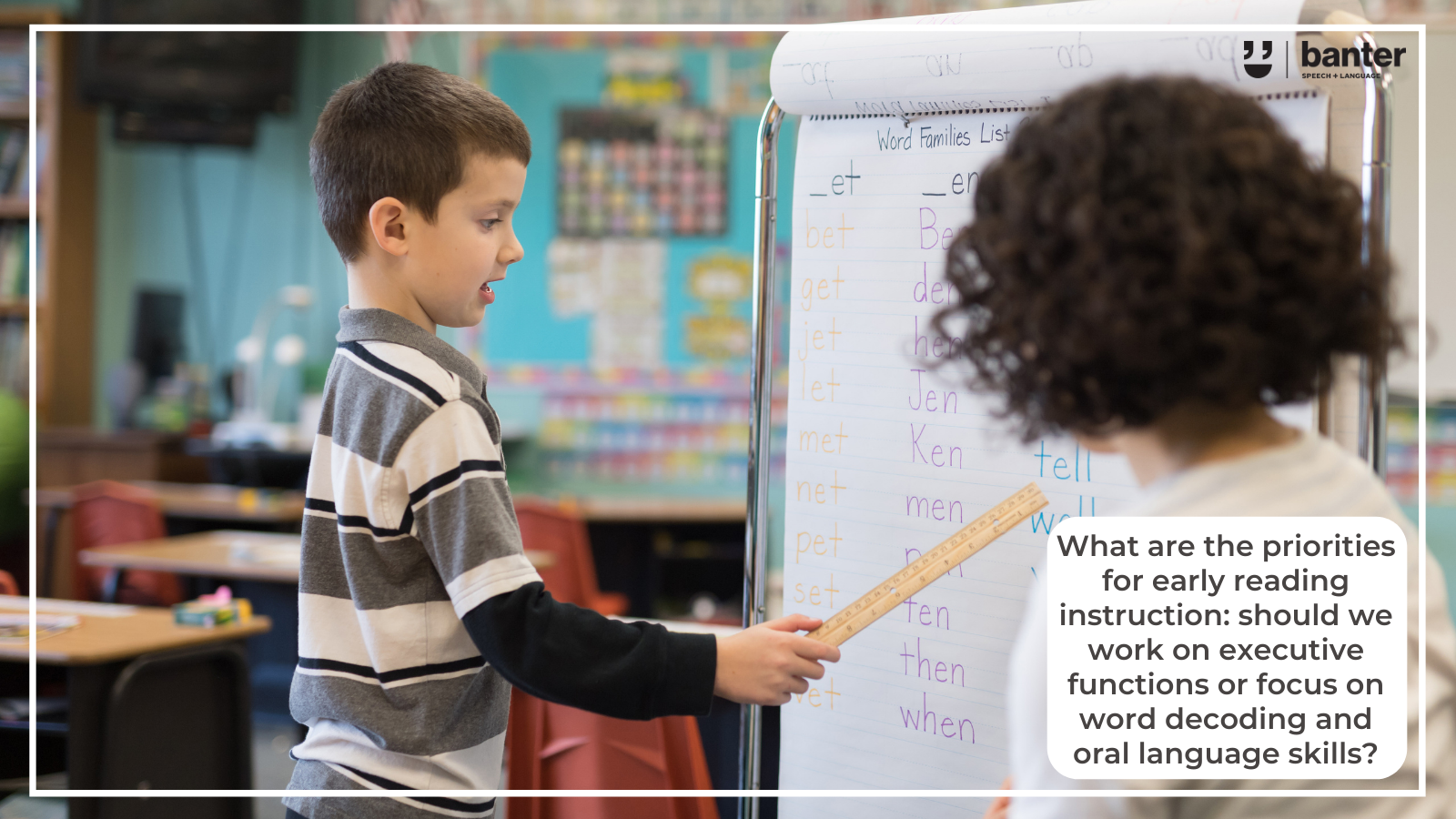The Simple View of Reading, originally proposed in 1986 by Gough and Tunmer, suggests that reading comprehension in early school years is best predicted by two factors:
- the child’s fluent word decoding; and
- the child’s oral language skills.
For example, studies have shown that fluent decoding and language skills, together with the effects of their interactions, explain more than 96% of the variance in students’ early reading comprehension development (e.g. Hjetland et al., 2018). You can read more about the Simple View of Reading here and here.
Some researchers think that a third factor has an important, additional, part to play in reading development: executive functions.
What does “executive functions” mean?
Executive functions are hard to define and even harder to measure. They are a set of top-down cognitive abilities that control thoughts and behaviours that include:
- verbal working memory, e.g. the ability to recall chunks of word-related information, like lists of numbers or words in sequence;
- visuospatial memory, e.g. the ability to mimic a sequence of movements, as in the famous “Simon” game of the 1980s;
- inhibition, e.g. the the ability to rapidly name opposite shapes (e.g. “say square when you see a circle”) or the opposite direction (e.g. “say down when the arrow is pointing up”);
- shifting or cognitive flexibility, e.g. tasks like saying the correct shape or arrow direction only if the object is coloured white, and the opposite shape or arrow direction if the item is black;
- planning, e.g. using strategies before, during, and after tasks to achieve a desired objective; and
- selective and sustained attention, e.g. the ability to identify targets among distractors.
There are plausible reasons why each of these functions may play a role in improving reading comprehension.
But do they?
Recent research, conducted with Romanian-speaking second graders, suggests that:
- executive functions, as with decoding and language skills, have a strong association with reading comprehension; but
- executive functions do not have a significant direct effect on the development of reading comprehension in early years beyond fluent decoding and oral language skills (at least in languages like Romanian, which have relatively transparent orthography); and
- fluent decoding and oral language skills explained 92% of the variance in the students’ reading comprehension, providing further support for the Simple View of Reading.
In other words, executive functions did not predict reading comprehension skills beyond the effects of fluent decoding and language skills.
These results were consistent with those from an earlier US study conducted with children aged 9-14 years in the US (Spencer et al., 2019). Together, the results suggest that the Simple View of Reading does not need to be updated to include executive functions as a third factor.
Clinical bottom line: What does this research mean for early reading instruction?
If we want to improve students’ reading comprehension skills, we should prioritise teaching students word decoding skills – especially in the early stages of reading development – and oral language skills, rather than spending our scarce time and money working on discrete executive functions like working memory and cognitive flexibility.
You can read a lot more about the science of reading, and what it means for early reading instruction here.
Principal Source:
Dolean, D.D., Lervåg, A., Visu-Petra, L., and Melby-Lervåg, M. (2021). Language skills, and not executive functions, predict the development of reading comprehension of early readers: evidence from an orthographically transparent language. Reading and Writing, 34, 1491–1512. Available here: https://link.springer.com/article/10.1007/s11145-020-10107-4
Related articles:
- Too many children can’t read. We know what to do. But how should we do it?
- “I don’t understand what I’m reading” – reading comprehension problems (and what to do about them)
- What I think about when I meet a child who can’t read
- “In one ear and out the other”. FAQs: working memory and language disorders

Hi there, I’m David Kinnane.
Principal Speech Pathologist, Banter Speech & Language
Our talented team of certified practising speech pathologists provide unhurried, personalised and evidence-based speech pathology care to children and adults in the Inner West of Sydney and beyond, both in our clinic and via telehealth.

